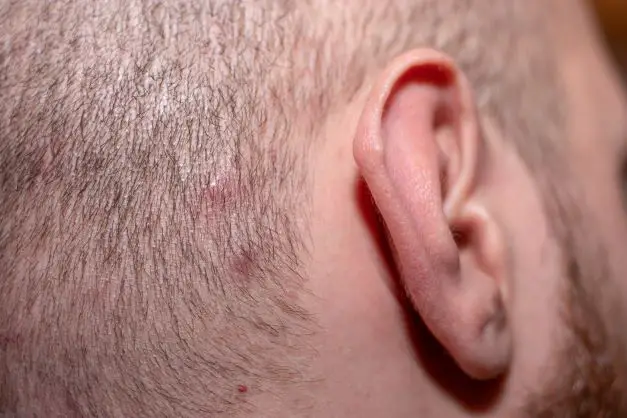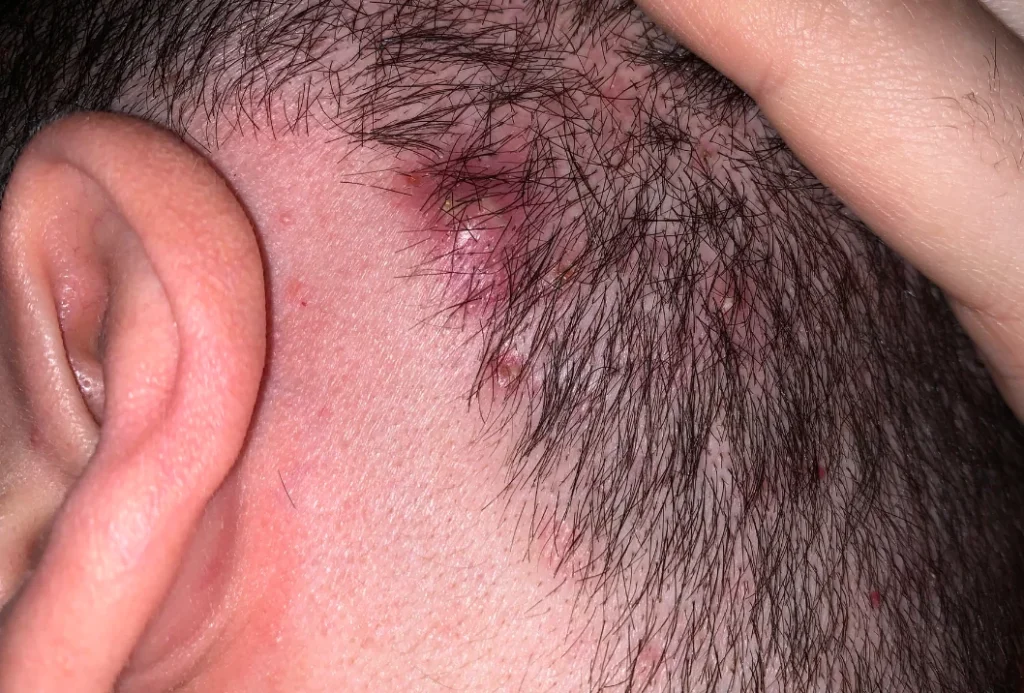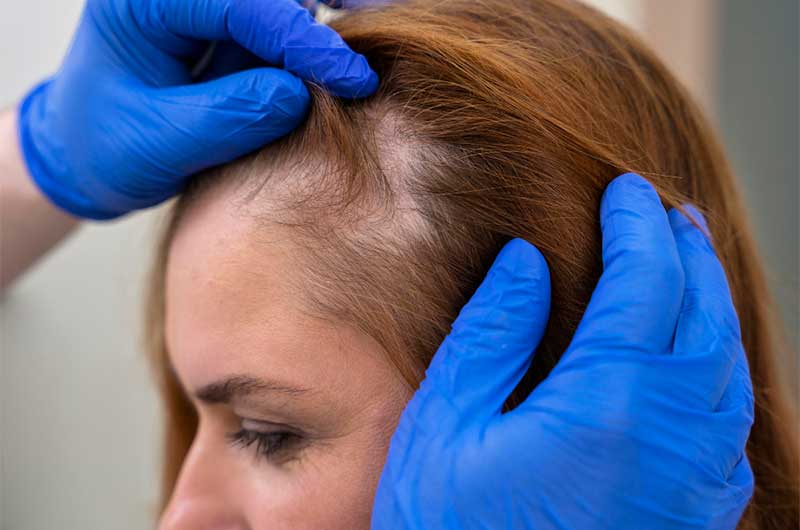Introduction
Have you ever experienced pesky pimples on scalp? You’re not alone! While acne is commonly associated with the face, it can also occur on other body parts, including the scalp. In this comprehensive guide, we will delve into the causes, treatment options, and prevention tips for those annoying pimples on the scalp. Whether you are dealing with occasional breakouts or a chronic condition, this article has got you covered. So, let’s get started!
1. Understanding Scalp Pimples
Pimples on the scalp, also known as scalp acne, can be uncomfortable and embarrassing. These blemishes often appear as small red bumps or pustules, similar to facial acne. Scalp pimples may cause itching, tenderness, and even hair loss in severe cases.

2. Causes of Pimples on Scalp
2.1 Hormonal Imbalances
Hormonal changes, such as those that occur during puberty, pregnancy, or menopause, can trigger an overproduction of sebum, the oily substance that lubricates the skin. This excess sebum can clog the hair follicles on the scalp, leading to the formation of pimples.
2.2 Poor Hair Hygiene
Infrequent shampooing, excessive use of hair products, and improper cleansing can contribute to pimples on scalp. Product buildup, sweat, and dirt can accumulate on the scalp, blocking the pores and causing inflammation.
2.3 Sweat and Friction
Activities that promote sweating, such as intense workouts or wearing hats for extended periods, create a moist environment on the scalp. Coupled with friction, this can lead to the development of pimples.
3. Treatment Options for Scalp Pimples
3.1 Proper Scalp Hygiene
The most crucial step in treating pimples on scalp is maintaining proper hygiene. Regularly shampoo your hair using a mild, pH-balanced cleanser to remove excess oil and debris. Avoid using harsh shampoos or over-washing, as this can strip the scalp of essential oils and worsen the condition.
3.2 Topical Treatments
Over-the-counter acne creams containing ingredients like benzoyl peroxide or salicylic acid can be applied directly to the affected areas. These treatments help unclog the pores, reduce inflammation, and kill bacteria.
3.3 Prescription Medications
For more severe cases, a dermatologist may prescribe oral antibiotics or topical corticosteroids to alleviate inflammation and fight infection. It is crucial to follow the prescribed dosage and duration strictly.
3.4 Natural Remedies
Certain natural ingredients, such as tea tree oil, aloe vera, and apple cider vinegar, have antibacterial and anti-inflammatory properties that can aid in scalp pimple treatment. However, it’s important to consult with a healthcare professional before using any home remedies.

4. Preventing Scalp Pimples
4.1 Cleanse Regularly
Maintain regular hair washing routines, especially after sweating or using hair products. Choose gentle shampoos and avoid those containing sulfates or fragrances that could further irritate the scalp.
4.2 Avoid Comedogenic Hair Products
Opt for non-comedogenic, water-based hair products that won’t clog the scalp’s pores. Look for labels indicating “oil-free,” “non-acnegenic,” or “non-comedogenic.”
4.3 Protect Your Scalp
When engaging in activities that promote sweating, wear breathable hats or headbands made of moisture-wicking materials. This helps prevent the buildup of sweat and reduces friction.
4.4 Watch Your Diet
Maintaining a healthy diet rich in fruits, vegetables, whole grains, and lean proteins can promote overall skin health. Avoid excessive consumption of sugary foods and beverages, as these can exacerbate acne.
Is a hot water bath affecting pimples on scalp?
There is limited scientific evidence directly linking hot water to the development or exacerbation of pimples on the scalp. However, hot water can potentially contribute to skin issues, including acne, in a few ways:
- Dryness: Hot water can strip the skin of its natural oils, leading to dryness. When the skin becomes dry, it may produce more oil to compensate, potentially clogging pores and contributing to acne.
- Irritation: Hot water can irritate the skin, especially if it’s sensitive. Irritated skin is more prone to inflammation and breakouts.
- Dilated Blood Vessels: Hot water can dilate blood vessels, potentially increasing blood flow to the skin. While this can have benefits, it may also contribute to redness and inflammation, which are factors in acne.
To help prevent pimples on the scalp, consider the following tips:
- Use Lukewarm Water: Instead of hot water, use lukewarm water for washing your scalp. This temperature is gentler on the skin and less likely to cause irritation or dryness.
- Use a Mild Shampoo: Choose a mild, fragrance-free shampoo that is suitable for your hair type. Avoid shampoos with harsh chemicals that may irritate the scalp.
- Avoid Overwashing: Washing your hair too frequently can strip it of natural oils, leading to increased oil production. Find a balance that works for your hair type.
- Gentle Cleansing: Be gentle when washing your hair and scalp. Avoid scrubbing too vigorously, as this can irritate the skin.
- Consider Topical Treatments: If you have persistent scalp acne, consider using over-the-counter or prescription topical treatments recommended by a dermatologist.
Conclusion
Dealing with pimples on scalp can be a frustrating experience. However, you can successfully manage this condition by understanding the causes, implementing proper treatment options, and taking preventive measures. Remember, maintaining good scalp hygiene, using appropriate hair products, and adopting a healthy lifestyle is key to keeping your scalp free from those unwelcome blemishes. If scalp pimples persist or worsen, don’t hesitate to seek professional advice from a dermatologist.
Q/A Section
- Can stress contribute to scalp pimples?
Yes, stress can trigger hormonal imbalances that may lead to scalp pimples. It’s essential to manage stress through relaxation techniques and self-care practices.
- How long does it usually take for scalp pimples to heal?
The healing process varies depending on the severity of the condition and individual factors. In general, with proper treatment and care, mild to moderate scalp pimples can resolve within a few weeks.
- Are scalp pimples contagious?
No, scalp pimples are not contagious. They are a result of internal factors such as hormonal imbalances or external factors like poor hygiene, and cannot be transmitted from person to person.




Leave a Reply